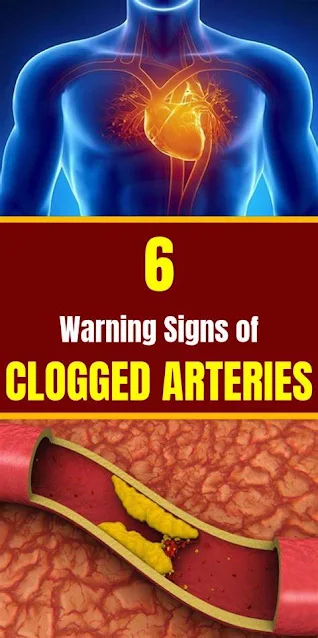Heart disease is one of the leading causes of death in the United States, and clogged arteries are a major contributor to this statistic. Clogged arteries, or atherosclerosis, occur when plaque builds up in the walls of your arteries, restricting blood flow and increasing the risk of heart attacks, strokes, and other serious health conditions. While clogged arteries may not always cause noticeable symptoms, there are warning signs that you should be aware of to protect your heart health.
In this article, we'll discuss six warning signs of clogged arteries that you should never ignore. Chest pain or discomfort, shortness of breath, numbness or weakness, vision changes, erectile dysfunction, and fatigue can all be symptoms of clogged arteries. While these symptoms can be caused by other health conditions, it's important to recognize them as potential warning signs of clogged arteries to seek medical attention promptly and address any underlying health issues.
To reduce your risk of clogged arteries, it's essential to maintain a healthy lifestyle, including eating a nutritious diet, getting regular exercise, and not smoking. However, even with a healthy lifestyle, genetics, age, and other factors can increase your risk of developing clogged arteries. Recognizing the warning signs of clogged arteries and seeking medical attention promptly can help prevent potentially life-threatening complications and protect your heart health.
Here are six warning signs of clogged arteries that you should never ignore.
- Chest Pain or Discomfort
Chest pain or discomfort, also known as angina, is a common symptom of clogged arteries. This pain may feel like pressure, tightness, or a squeezing sensation in your chest. It may also radiate to your arms, back, neck, or jaw. Chest pain or discomfort is often triggered by physical activity or emotional stress, and it may subside with rest. However, if you experience persistent or worsening chest pain, it's important to seek medical attention immediately.
- Shortness of Breath
Clogged arteries can also cause shortness of breath, particularly during physical activity or exertion. This symptom occurs because your heart is not receiving enough oxygen-rich blood due to the reduced blood flow caused by the plaque buildup. Shortness of breath may also be accompanied by other symptoms, such as chest pain or fatigue.
- Numbness or Weakness
If your arteries are severely clogged, it may reduce blood flow to your limbs, causing numbness or weakness in your arms or legs. This symptom may also occur on one side of your body and can be a sign of a stroke or other serious health condition. If you experience sudden numbness or weakness, seek medical attention immediately.
- Vision Changes
Clogged arteries can also affect your vision. If the arteries in your eyes are affected, you may experience blurred vision, double vision, or vision loss. These symptoms may occur gradually over time, and it's important to have your eyes checked regularly to monitor your eye health.
- Erectile Dysfunction
Clogged arteries can also affect sexual function in men, causing erectile dysfunction. This occurs because reduced blood flow to the penis can make it difficult to achieve or maintain an erection. If you experience persistent or worsening erectile dysfunction, it's important to see a doctor for an evaluation.
- Fatigue
Fatigue is a common symptom of many health conditions, including clogged arteries. This symptom occurs because your heart is working harder to pump blood through your narrowed arteries, leading to increased fatigue and weakness. If you experience persistent fatigue, it's important to see a doctor to rule out any underlying health issues.
Conclusion
Clogged arteries are a serious health concern that requires prompt medical attention. While these warning signs may not always indicate clogged arteries, they can be a sign of other serious health conditions. If you experience any of these symptoms, it's important to see a doctor for an evaluation. Taking steps to reduce your risk of clogged arteries, such as maintaining a healthy diet, exercising regularly, and not smoking, can help you maintain good heart health and prevent potential complications.

